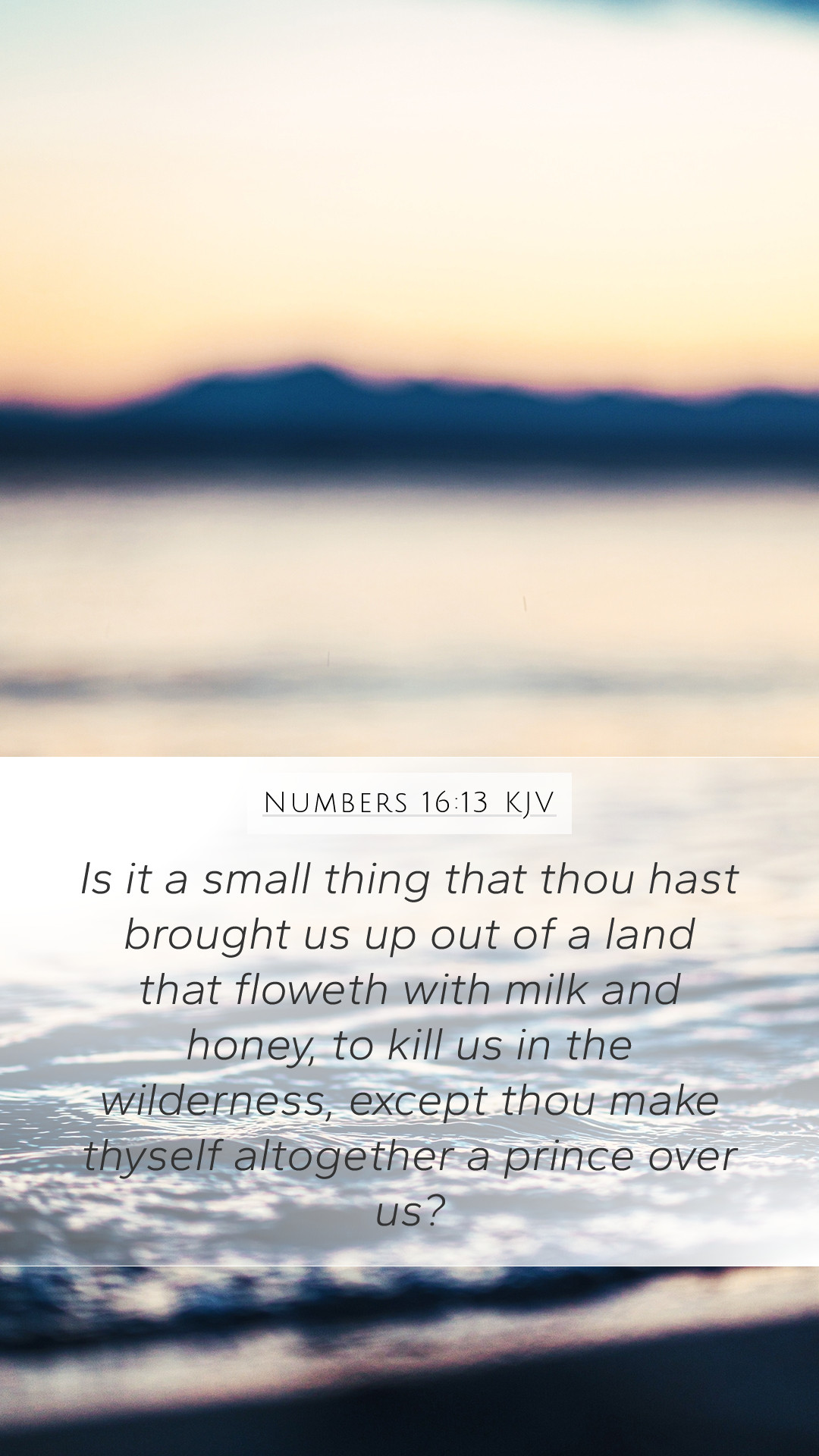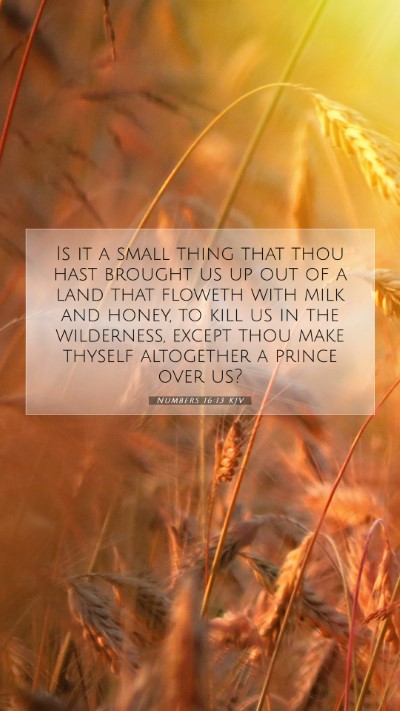Understanding Numbers 16:13 – A Comprehensive Bible Verse Commentary
Numbers 16:13 states: "Is it a small thing that you have brought us up out of a land that flows with milk and honey, to kill us in the wilderness, and that you should altogether make yourself a prince over us?"
This verse is pivotal in understanding the rebellion of Korah against Moses and Aaron's leadership in Israel. The phrase "brought us up out of a land that flows with milk and honey" highlights the complaint of the Israelites as they express their dissatisfaction with the current leadership and circumstances. Let's delve deeper into the meaning of this passage, drawing insights from various public domain commentaries.
Contextual Overview of Numbers 16
The story in Numbers 16 unfolds as Korah, Dathan, and Abiram challenge the authority of Moses and Aaron, questioning their leadership and the divine appointment of their roles. This verse encapsulates their grievance, revealing the core issues of rebellion and discontent among the Israelites.
Insights from Commentaries
Matthew Henry's Commentary
Matthew Henry emphasizes the ingratitude of the Israelites in their slanderous accusation against Moses. He notes that the land of Egypt, referred to as a place of "milk and honey," was a site of oppression rather than prosperity for the Israelites. Their statement dismisses God's miraculous deliverance and shows a profound misunderstanding of their current condition as a time of divine guidance rather than oppression.
Albert Barnes' Commentary
Albert Barnes provides a deeper historical context, suggesting that the reference to "the land that flows with milk and honey" reflects a backsliding heart. He points out that the Israelites faced trials in the wilderness, yet instead of trusting in God’s promise, they resorted to nostalgia for their former lives in Egypt. This highlights the theme of human nature's tendency to forsake faith for physical comfort.
Adam Clarke's Commentary
Adam Clarke stresses the rhetorical nature of the complaints made by Korah and his followers. He argues that the statement implies a denial of God's providence. By claiming that Moses desires to be a prince over them, they misconstrue his leadership, which was ordained by God. Clarke warns that such rebellion leads to dire consequences, illustrating the importance of respecting divinely instituted authority.
Theological Implications
This verse serves as a reminder of the human inclination towards rebellion when faced with hardship. It showcases the importance of faith in the journey toward fulfillment of God’s promises. The insidious nature of discontent can distort our perspective, leading us to forget God’s goodness and the historical evidence of His faithfulness.
Application of Numbers 16:13 to Daily Life
Understanding this verse can enrich our personal Bible study insights and group discussions. It encourages believers to reflect on their grievances and challenges and to evaluate whether these arise from a lack of faith in God’s providential care. It compels us to acknowledge our history of deliverance and the blessings we often take for granted.
Related Bible References
- Exodus 16:3 - The Israelites crave the foods of Egypt.
- Numbers 14:2-4 - The people yearn to return to Egypt following the report of the spies.
- Psalm 106:24-25 - A reflection on Israel's discontent in the wilderness.
Conclusion
Numbers 16:13 highlights a crucial moment of rebellion that serves as a timeless lesson in the necessity of trusting God's plan, even in adversity. It is a reminder to engage deeply in Bible verse interpretations and explore the layers of meaning within Scripture. When striving to understand Scripture, consider the broader historical context and the individual’s relationship with God’s word.


